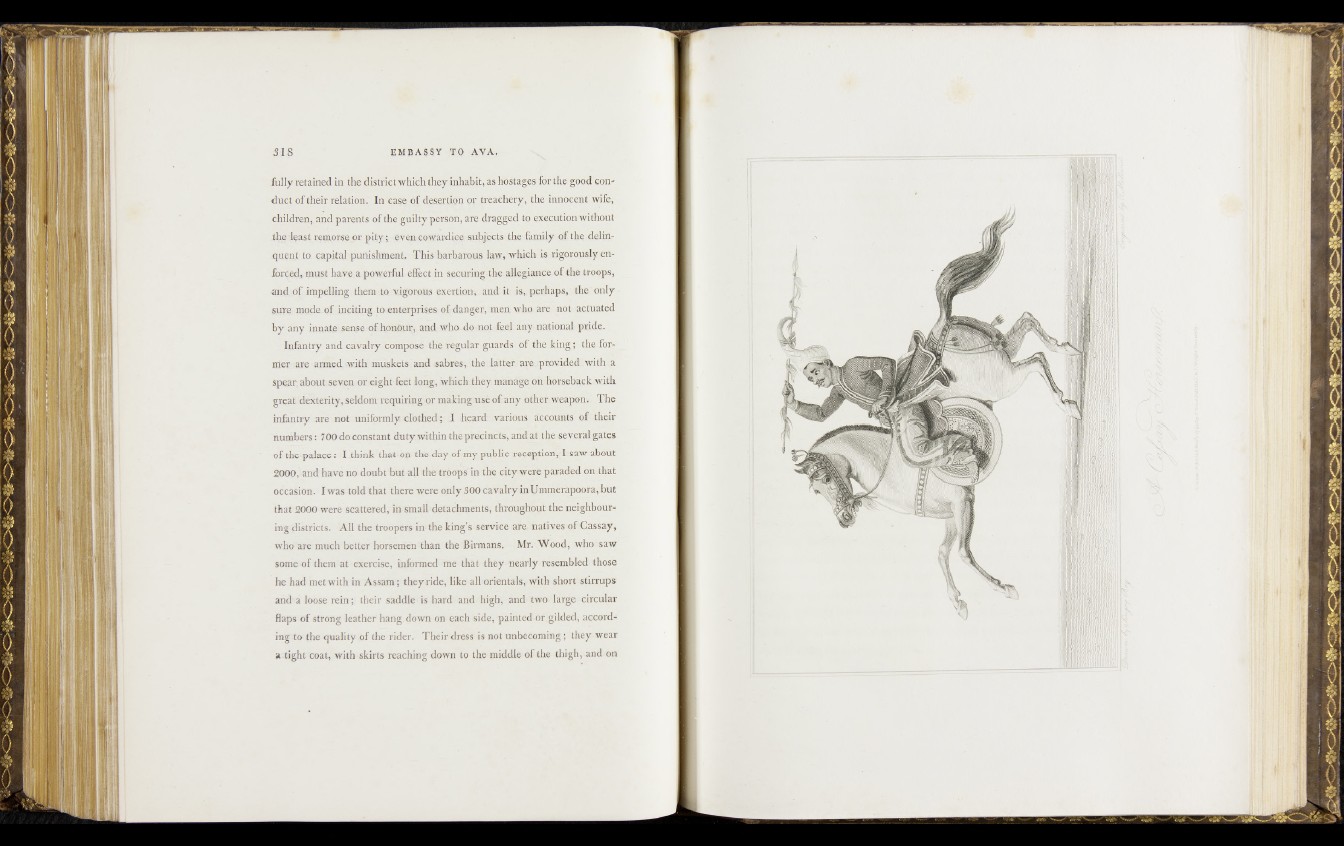
fully retained in the district which theyinhabit, as hostages for-the‘ good conduct
of their relation. In d£s|>pf desertion or treachery, the infiocent wife,
childrenvajid parents ofthggujlty person, are dragged to execution without
the'feast rergtor$e.oc pUy*i. eveneowardice subjects the family of the d'elto-
jqnen,t .to. capital punishment. This harharous law, wbfeh is rigorously en-
£«■€44, ha.vg; apowSlful-effeet in spousing the allegiance of the troops,
and of impelling them to vigorous exertion-, and-it is,.perhaps, the only-
of danger, .-mwis whOi:are n o t ?a#t®ited
by any innate sense of honour> and, who.donot!,\fePh aHy> n|i|tianai>!plide.
Infantry and cavalry compose the regular guards of the king; the for«.
Bley: ,are armed, -with' muskets and sabres, the latter; are^pKwided .with a
spear; about: seven or eight-feet long, which:they. manage onshorsehack with
great dexterity, seldom requiring.or making.use oh any o ther, weapon. The
infantry are not uniformly rcTothed; J heard- various accounts-of' their
numbers: ?00 do constant duty within theprecincts, andlafcthe.-severalgates
of tta p a lao e : I think that op the day of my public recejrtkm^Irsaw about
5000,"and have no doubt but ail the troops in the city were paraded ohrthat
Occasion. I was told that there were only 300 cavalry in.tbnmerapoora,' bat
that 2,000 were scattered, in small detachments, throughout the neighbouringdistricts.
All the troopers in;the king’s service are natives of Cassay,
who are much better horsemen -than the Birmans. Mr. Wood, who saw
some of them at exercise, informed me that »they-nearly resembled;those
he had-met with in Assam; theyride, like-all-0rientals,-w4fch short stirrups
and a loose re in : their saddle is hard and high, and two large circular
flaps of strong leather hang.down on each side,- painted or gilded, according
to the quality of the rider. Their dress is not unbecoming; they-wear
a-tight coat, with skirts reaching down to the middle o f the thigh, and-on